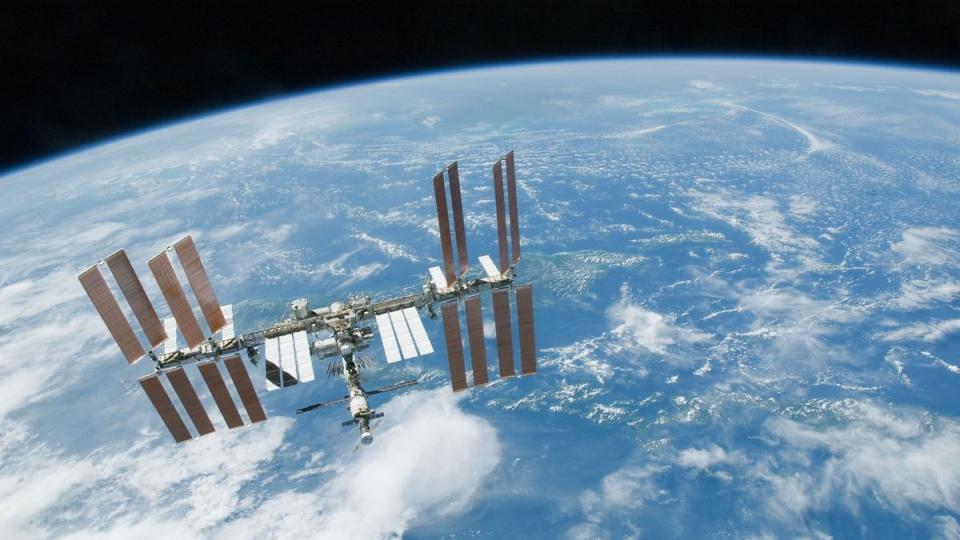Charles Bolden served as the 12th NASA administrator, making him only the second astronaut to hold that position. Bolden is the founder and CEO emeritus of The Charles F. Bolden Group
Ambassador Stuart Holliday served as United States Ambassador for Special Political Affairs to the United Nations (2003-2005) after presidential nomination and Senate confirmation. Holliday is CEO of Meridian International Center, a leading nonpartisan organization that advances global security and prosperity through effective leadership and diplomacy.
President Joe Biden’s announcement in April 2024 that Japanese astronauts will join an upcoming Artemis mission marked a major milestone. For the first time, a non-American will set foot on the moon, marking a new era of international cooperation in space exploration.
This was preceded by a United Nations resolution proposed by the US and Japan to prevent the development of nuclear weapons in space, which called on all countries to refrain from deploying weapons of mass destruction, as stipulated in a 1967 treaty. Russia vetoed the resolution – a reminder of the continuing risk of turning space into a battlefield. These recent developments underscore the crucial role of diplomacy and strategic international partnerships in the emerging space age.
The 20th century space race, marked by competition and high barriers to entry, has been transformed. The playing field has widened, and the absence of traditional gatekeepers in space has opened up unprecedented opportunities for cooperation. The United States now stands at the helm, leading an international coalition of traditional allies, emerging space nations, and innovative private entities through the complex political terrain of space. This evolution from competition to cooperation represents a major paradigm shift in how we approach the ultimate frontier.
Over the past 50 years, space exploration has provided humanity with a platform to tackle some of our most pressing challenges. From climate change research and improving global communications networks to advances in healthcare through zero-gravity research, space has proven indispensable for innovation and development.
By expanding internet access to regions with limited telecommunications infrastructure, projects like SpaceX’s Starlink or the Arctic Satellite Broadband Mission are integrating remote communities into the global economy on an unprecedented scale. These breakthroughs are only possible through partnership with the private sector.
As the era of the International Space Station (ISS) draws to a close, the development of private space stations and the rise of commercial space activities are ushering in a new phase of orbital diplomacy, with companies like Axiom Space leading the way for the launch of the first module to the ISS in 2026 and completion of the station in the late 2020s. This shift will require a significant increase in collaboration between governments and the private sector to ensure that space remains safe, sustainable, and can continue to provide critical benefits to society as a whole.

However, current space governance frameworks, including the 1967 United Nations Outer Space Treaty, are outdated and no longer reflect the reality of today’s space activities and technologies. The US in 2020 created the Artemis Accords, a non-binding set of principles and guidelines to advance a sustainable and cooperative future in space that has so far gathered 39 signatories to begin addressing this gap. The Hague Institute for Global Justice’s Washington Compact seeks to establish private sector standards, recognizing the importance of corporate diplomacy to ensure the stability of a privatized low Earth orbit (LEO) environment.
However, space is not a unipolar system, and rival coalitions and alternative norms are emerging in the Global South. The U.S. State Department published its first Space Strategic Framework in 2023 and began its annual Space Diplomacy Week to expand the base of like-minded space-faring nations and outline how we can promote responsible behavior from all space actors. From a U.S. perspective, building relationships with emerging space-faring nations and encouraging them to adopt democratic practices is critical.
The US has prioritized the African continent’s space economy, with Rwanda, Nigeria and Angola all signing up to the Artemis Accords. However, other African countries – aspiring to BRICS membership – have chosen to pursue space partnerships with China instead. Chinese ambitions to become the leading force on the moon via the International Lunar Research Station have raised concerns about sovereign claims in space, which are strictly prohibited by the Outer Space Treaty.
Practical contemporary statesmanship should follow the principle of open diplomacy – that governments alone cannot conduct relations with other nations. Global businessmen, state and local leaders, scientists and technologists must work together to shape international affairs.
RELATED STORIES:
— Cooperation on the Moon: Are the Artemis Accords Enough?
– Artemis agreements: what are they and which countries are involved?
– US must beat China back to the moon, Congress tells NASA
This is also true for space missions. While astronauts are crucial and often the face of the mission, there is an entire supply chain that got them there in the first place. Think of the scientists and engineers in mission control. The private companies contracted through public-private partnerships to participate in the mission. The foreign countries that jointly fund the mission. The success of the mission depends on the level of communication and trust between these actors, which is what diplomacy aims to facilitate.
The US is responsible for ensuring equal access to STEM education and diplomatic skills training across the country. In doing so, we ensure that our space workforce is more representative of all Americans and equipped with the tools necessary to represent our country in space.
In this era of vast possibilities in space exploration, it is imperative that we take a unified, diplomatic approach to securing our space frontier. By fostering collaboration among nations, industries, and innovators, we will not only secure the future of space exploration, but pave the way for a more interconnected and prosperous world and an unprecedented era of collaboration.